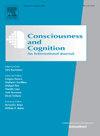注意力控制是心理想象的生动性与情绪调节之间关系的中介。
IF 2.1
3区 心理学
Q2 PSYCHOLOGY, EXPERIMENTAL
引用次数: 0
摘要
相互矛盾的研究结果表明,心理意象既可能加剧负面情绪,也可能起到保护作用。我们旨在通过考虑意象生动性、注意力控制、复原力、情绪调节策略和负性情绪(抑郁、焦虑和创伤后应激症状)的个体差异(N=989)来调和这些相互矛盾的研究结果。我们假设,注意力控制将在意象生动性、情绪调节策略的使用和精神病理学症状之间起到中介作用。结果显示,意象的生动性在注意力控制的中介作用下,能预测更高水平的健康再评价和有害反刍。注意力控制还能调节意象生动性与灾难化、自责和精神病理学症状之间的负相关。探索性潜结构方程模型显示,意象生动性和注意力控制与重评和复原力得分呈正相关。本研究表明,意象生动性可通过注意力控制的间接效应发挥适应功能,促进适应性情绪调节,限制适应性不良策略的使用,从而防止负面情绪的产生。本文章由计算机程序翻译,如有差异,请以英文原文为准。
Attention control mediates the relationship between mental imagery vividness and emotion regulation
Contradictory findings suggest mental imagery may both exacerbate and protect against negative affect. We aimed to reconcile these contradictory findings by considering individual differences (N=989) in imagery vividness, attention control, resilience, emotion regulation strategy, and negative affect (depressive, anxious, and posttraumatic stress symptomology). We hypothesized that attention control would mediate relationships between imagery vividness and emotion regulation strategy use, and psychopathology symptomology. Results revealed that imagery vividness, as mediated by attention control, predicted greater levels of healthy reappraisal and deleterious rumination. Attention control also mediated negative relationships between imagery vividness and catastrophizing, self-blame, and psychopathology symptomology. An exploratory latent structural equation model revealed that imagery vividness and attention control aggregated positively with reappraisal and resilience scores. The present investigation suggests an adaptive function of imagery vividness via the indirect effects of attention control, facilitating adaptive emotion regulation and limiting maladaptive strategy use, thereby protecting against negative affect.
求助全文
通过发布文献求助,成功后即可免费获取论文全文。
去求助
来源期刊

Consciousness and Cognition
PSYCHOLOGY, EXPERIMENTAL-
CiteScore
4.30
自引率
8.30%
发文量
123
期刊介绍:
Consciousness and Cognition: An International Journal provides a forum for a natural-science approach to the issues of consciousness, voluntary control, and self. The journal features empirical research (in the form of regular articles and short reports) and theoretical articles. Integrative theoretical and critical literature reviews, and tutorial reviews are also published. The journal aims to be both scientifically rigorous and open to novel contributions.
 求助内容:
求助内容: 应助结果提醒方式:
应助结果提醒方式:


